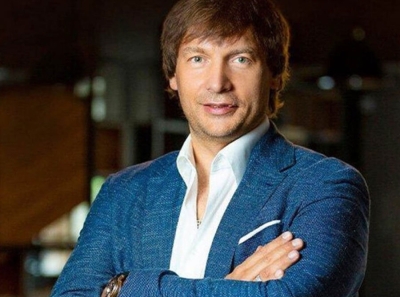As Ukraine positions itself for potential EU accession, Brussels remains notably reticent on the matter, preoccupied instead with assuaging the concerns of disgruntled farmers across the continent.
The agricultural sector’s discontent, manifested in protests marred by occasional violence, underscores a pressing dilemma for EU policymakers.
Farmers lament their struggle against cheap imports, particularly from Ukraine, coupled with soaring fuel costs and stringent environmental regulations emanating from Brussels.
In a bid to mollify these concerns, EU member states recently agreed to impose restrictions on Ukrainian agricultural exports, a significant setback for Ukraine’s trade prospects within the bloc.
France, aligning with Poland’s stance, advocated for limitations on imports of Ukrainian poultry, eggs, sugar, and wheat during a recent gathering of government envoys.
Behind closed doors, senior officials attribute this concession to a fear among leaders that the farmers’ grievances could galvanize support for populist movements across Europe, reminiscent of the emergence of parties such as the BBB in the Netherlands.
Against this backdrop of domestic discord, discussions on EU enlargement, particularly with Ukraine, have been conspicuously muted, especially in the run-up to the forthcoming European Parliament election.
The reluctance to broach the subject publicly stems from a desire to avoid providing ammunition to far-right factions during electoral campaigns.
Nevertheless, European Commission President Ursula von der Leyen has committed to preparing the EU for Ukrainian integration, emphasising the need to address this issue urgently to secure the bloc’s future.
However, the road to Ukrainian accession presents formidable challenges.
As the largest country by landmass in the EU, Ukraine’s entry would significantly alter the geopolitical landscape, potentially reshaping the dynamics of the European Parliament and the Council of the EU.
Despite its substantial population, Ukraine’s comparatively low GDP would strain the bloc’s cohesion policy, necessitating substantial financial transfers from wealthier to poorer regions.
Internal estimates suggest that integrating Ukraine could entail approximately €186 billion in EU funds over seven years, highlighting the magnitude of the financial commitment required.
Moreover, the prospect of enlargement necessitates concurrent intra-European reforms, a proposition met with trepidation by some member states.
The delicate balance between enlargement and internal reform has prompted cautious deliberations within the Commission, exacerbated by the impending European Parliament election.
Hungary’s resistance to discussions regarding EU support for Ukraine further complicates matters, with Prime Minister Viktor Orbán’s influence impeding progress during recent Council meetings.
The prevailing sentiment among some member states is that enlargement discussions should be postponed until after the electoral cycle, allowing for a more substantive debate on intra-European reform.
As European leaders convene to address enlargement at the upcoming summit, the focus is expected to be on assessing the necessary preparatory steps rather than initiating substantive discussions.
The Commission’s forthcoming communication on pre-enlargement reform, delayed amidst internal wrangling, is anticipated to shed light on the bloc’s evolving stance on enlargement.
Looking ahead, the strategic agenda for the next European Commission, to be finalized post-election, will likely feature a robust debate on both enlargement and intra-European reform.
Poland’s impending presidency of the Council of the EU in 2025 is expected to provide impetus for advancing discussions on enlargement.
In conclusion, while Ukraine’s aspirations for EU membership remain on the agenda, Brussels’ reticence and the complex interplay of domestic and geopolitical considerations suggest that substantive progress may be deferred until after the electoral cycle, paving the way for a more nuanced debate on the future of European integration.
Click here for more on Ukraine at EU Today
________________________________________________________________________________________________________

Follow EU Today on social media:
Twitter: @EU_today
@EU_sports
Facebook: https://www.facebook.com/EUtoday.net/
https://www.facebook.com/groups/968799359934046
YouTube: https://www.youtube.com/@eutoday1049







